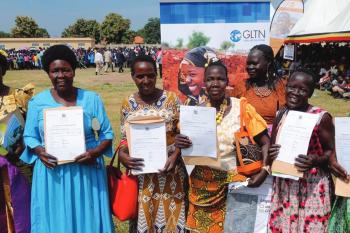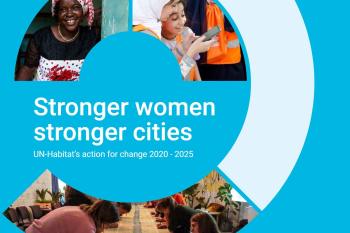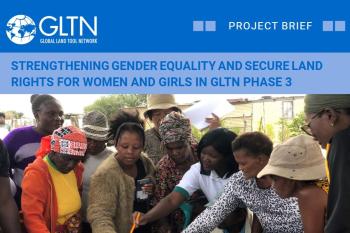
Read More
Gender Strategy for Land-at-Scale Uganda
Women’s Land Rights (WLRs) are fundamental human rights, foundational to gender equality and women’s dignity and instrumental in improving food security, effective climate action, poverty eradicati

Urban Planning for City Leaders is a valuable source of information, inspiration and ideas on urban planning that is designed for city leaders and decision makers at a critical moment in human history. Predicted human population growth over the next 50 years will have immense consequences for all cities, in particular intermediate cities with populations of up to two million people. Developed countries will need to double the amount of urban space they have by 2050 to accommodate the expected numbers of people, whereas developing countries will need to expand their urban space by more than 300 per cent. Other issues that affect cities and how we manage them are climate change, depleting resources, environmental degradation and limited budgets - serious problems that will not go away just because they are ignored. Most cities will simply not be able to cope with the impact of population growth and other issues if they do not start preparing for them now.

Women’s Land Rights (WLRs) are fundamental human rights, foundational to gender equality and women’s dignity and instrumental in improving food security, effective climate action, poverty eradicati

This publication presents a summary of UN-Habitat’s gender equality impact over the past five years, in line with the Beijing reporting cycle.

GLTN’s institutional commitment to gender equality and secure land rights for women and girls has been at the core of its work since inception in 2006.